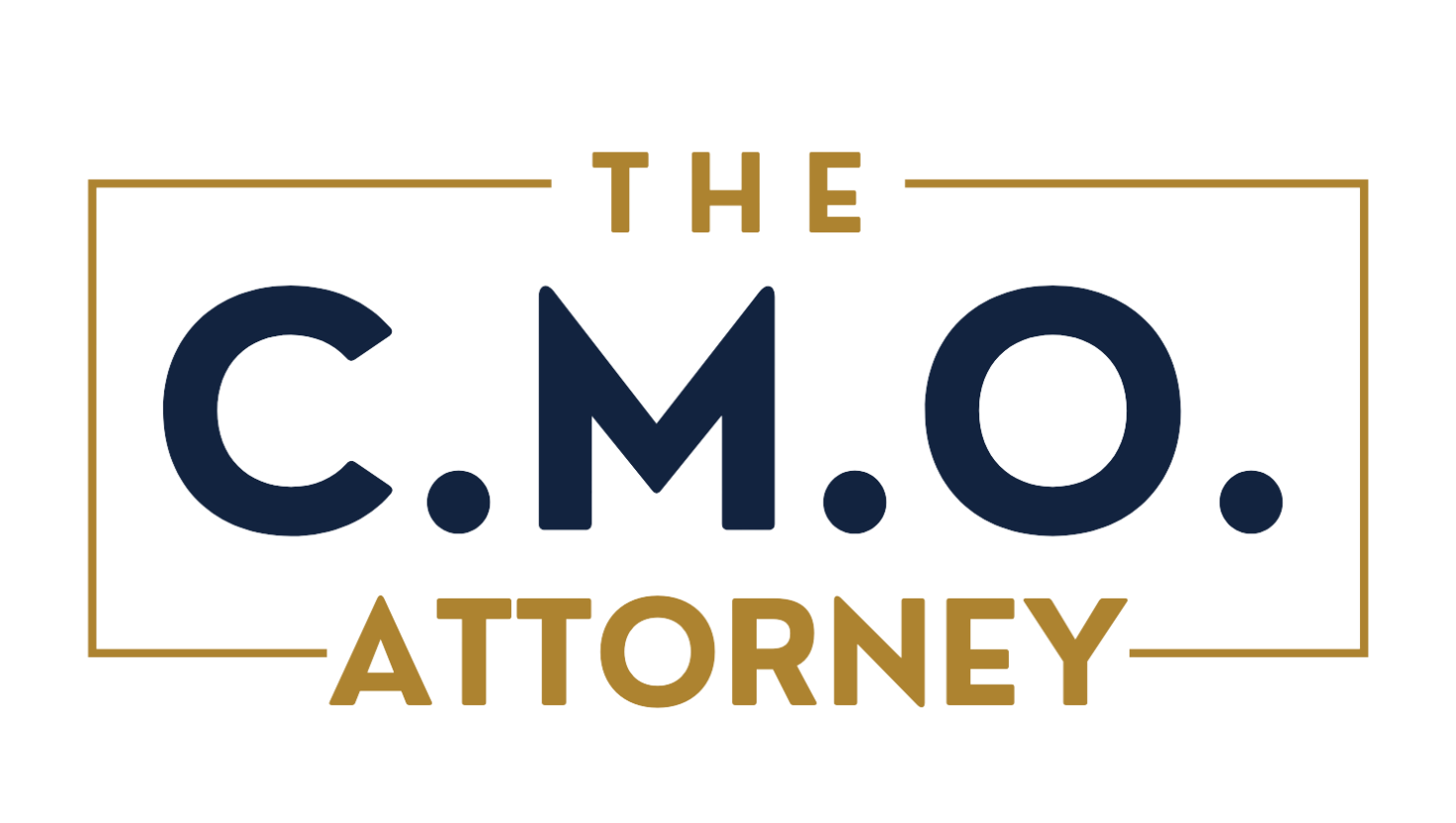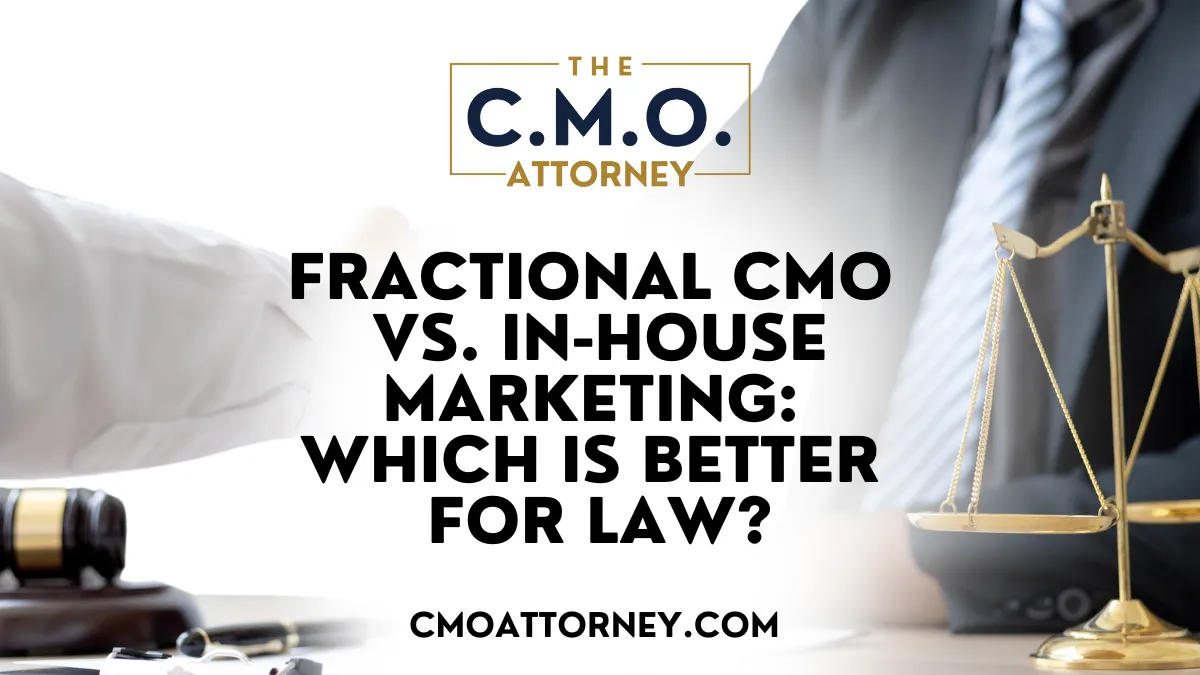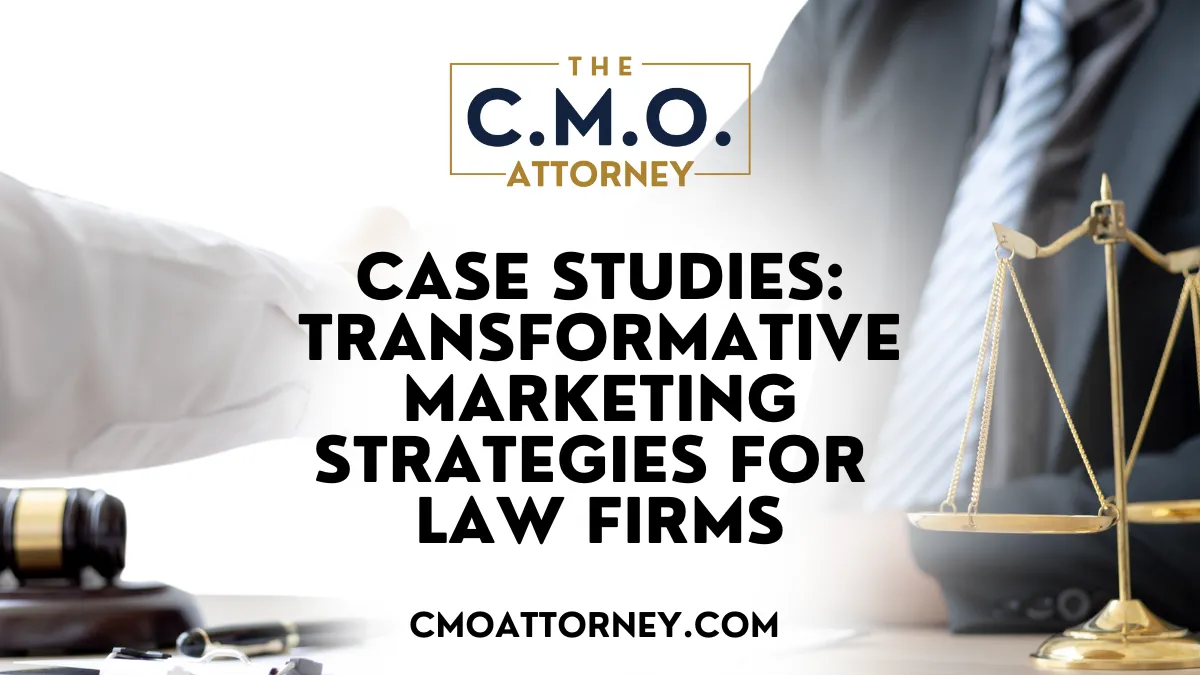 Table Of Contents:
Table Of Contents:
- Defining ROI in Law Firm Marketing
- Strategies for Maximizing ROI in Law Firm Marketing
- Case Studies Demonstrating Successful Law Firm Marketing ROI
- Case Studies Demonstrating Successful Law Firm Marketing ROI
- Identifying Common Pitfalls in Law Firm Marketing
- Identifying Common Pitfalls in Law Firm Marketing
- Innovative Techniques to Enhance Marketing ROI
- Future Trends in Law Firm Marketing and ROI Expectations
- FAQs on Maximizing ROI in Law Firm Marketing
- FAQs on Maximizing ROI in Law Firm Marketing
- Conclusion
Is your law firm struggling to see a return on its marketing investments? Understanding marketing ROI is crucial for making informed decisions that drive growth. This article explores key strategies to maximize ROI in law firm marketing, highlights successful case studies, and identifies common pitfalls to avoid. By engaging with this content, law firms can gain insights into effective digital marketing for lawyers, improving their overall marketing strategy and achieving better consultation rates. This will help address the challenge of getting measurable results from marketing efforts in the legal industry. The CMO Attorney wants you to be educated on the role of fractional CMO – so let’s get started, but if you’re ready – we’re here for a free consultation of your firm’s marketing plan and growth strategy!
Defining ROI in Law Firm Marketing
Understanding what constitutes a high ROI in legal marketing is essential for law firms aiming to thrive. Implementing a robust law firm marketing strategy will enable firms to maximize their efforts. This section will highlight key metrics for measuring marketing success stories, including the impact of social media marketing and effective social media strategies. Additionally, digital marketing for lawyers plays a crucial role. Attention will also be given to the significance of tracking web traffic and ethical considerations related to client communications, such as capturing an email address.
What Constitutes a High ROI in Legal Marketing
A high ROI in legal marketing can be defined by several performance indicators, including increased leads generated through effective SEO strategies, digital marketing for lawyers, and website design. Law firms that optimize their online presence through a comprehensive law firm marketing strategy and tailored web design not only attract potential clients but also streamline their accounting processes by tracking the sources of these leads. This results in a clearer understanding of which marketing efforts yield the best financial returns, allowing firms to make data-driven decisions.
Furthermore, successful marketing initiatives should focus on both client engagement and retention as part of a law firm marketing strategy. For instance, utilizing targeted email campaigns can significantly enhance communication with existing clients through digital marketing for lawyers, fostering loyalty and repeat business. When law firms measure the effectiveness of such campaigns, they can assess the overall impact on profitability, ensuring that their marketing budget is allocated towards strategies that deliver the highest results.
Key Metrics for Measuring Marketing Success
Key metrics for measuring marketing success in law firms include visibility and credibility across various platforms. Law firms can track online advertising performance by monitoring website traffic and engagement rates through digital marketing for lawyers, helping them refine their law firm marketing strategy and improve lead generation. A consultant can assist firms in analyzing these metrics to ensure that marketing efforts translate into tangible results, driving profitability and building a solid reputation in the legal marketplace.
Another effective strategy is direct mail marketing, which can complement online initiatives, such as digital marketing for lawyers, by reaching potential clients in diverse ways. By assessing response rates and conversion from these campaigns, law firms can gauge the effectiveness of their law firm marketing strategy and outreach. This dual approach of integrating online advertising with traditional marketing efforts provides a comprehensive view of the firm’s overall performance, maximizing ROI and fostering deeper client connections.
James Frazier | The CMO Attorney | Fractional CMO
Strategies for Maximizing ROI in Law Firm Marketing
Implementing targeted client acquisition strategies and utilizing data analytics are critical for maximizing ROI in law firm marketing strategy. Developing a strong online presence through SEO and digital marketing for lawyers, including an effective about us page, and enhancing social media engagement can further boost visibility for personal injury law practices. Additionally, adopting a multi-channel marketing approach will improve lead generation and ensure sustainability, ultimately driving profit for law firms.
Implementing Targeted Client Acquisition Strategies
To implement targeted client acquisition strategies, law firms must first establish a strong brand presence in the estate planning landscape. This involves creating marketing campaigns that resonate with potential clients by addressing their specific needs and concerns regarding estate planning. By focusing on intuitive user experience in digital interactions, firms can attract clients who seek trust and clarity in their legal services, resulting in more qualified leads.
Furthermore, analyzing the performance of these marketing campaigns is crucial for optimizing client acquisition efforts. Law firms can utilize data analytics to understand how different marketing channels impact client engagement and conversion rates. By refining strategies based on this data, firms can enhance their brand visibility and effectively connect with prospective clients, ultimately increasing ROI and fostering long-term relationships.
Utilizing Data Analytics to Refine Marketing Efforts
Utilizing data analytics plays a pivotal role in refining marketing efforts for law firms. By closely monitoring keyword rankings and analyzing website traffic, firms can gain insights into which content strategy resonates most with their audience. This allows them to tailor their digital marketing initiatives more effectively, ensuring that the content creation aligns with clients’ needs and search behaviors.
Furthermore, outsourcing analytics tasks can free up internal resources while providing law firms with expert insights. For example, leveraging analytics platforms can help identify areas for improvement in digital marketing campaigns, such as optimizing landing pages for better conversion rates. This informed approach enables firms to maximize ROI by focusing their resources on strategies that yield the highest engagement and lead generation.
Developing a Strong Online Presence Through SEO
Developing a strong online presence through search engine optimization (SEO) is crucial for law firms looking to enhance their marketing efforts and maximize ROI. By conducting thorough keyword research, firms can identify the terms potential clients use when searching for legal services, ensuring that their content aligns with client behavior. An expert approach to SEO not only improves visibility on search engines but also positions the firm as a trusted authority in their field, attracting more qualified leads.
To effectively implement SEO strategies, law firms should focus on optimizing their website structure, content, and metadata. This includes using target keywords strategically throughout the site, which enhances relevance and improves search rankings. Additionally, creating valuable, informative content that addresses common client questions fosters engagement and positions the firm as an expert in their area of practice, ultimately driving more traffic and improving ROI from firm marketing initiatives.
Enhancing Social Media Engagement to Boost Visibility
Enhancing social media engagement is essential for law firms aiming to boost visibility and connect with potential clients. By creating targeted content that speaks to consumer needs, firms can establish a strong online presence, positioning themselves as approachable and knowledgeable lawyers. Utilizing analytics to track engagement metrics can provide valuable insights into what types of posts resonate most with customers, allowing firms to optimize their social media strategies effectively.
Moreover, integrating text messaging into social media interactions can further enhance communication with clients. This modern approach not only speeds up response times but also makes the firm more accessible. By addressing common legal queries and sharing informative content through these platforms, law firms can build trust and rapport with their audience, leading to increased client retention and optimal ROI from marketing efforts.
Adopting a Multi-Channel Marketing Approach
Adopting a multi-channel marketing approach is essential for law firms looking to enhance their digital marketing services and maximize ROI. This strategy allows firms to reach potential clients through various platforms, reducing the risk often associated with relying on a single channel. By integrating online advertising, social media engagement, and organic search results, firms can create a comprehensive client intake process that appeals to diverse audiences, ultimately driving more high-quality leads.
Case Studies Demonstrating Successful Law Firm Marketing ROI
This section covers key analyses showcasing significant returns on marketing investment within law firm strategies. First, it evaluates the success of a law firm’s social media campaign, highlighting its impact on client engagement. Next, it examines how effective content marketing influences client retention rates. Insights into SEO strategies reveal long-term returns on investment, while results from targeted email marketing campaigns demonstrate the effectiveness of direct marketing. Each case underscores practical approaches for improving ROI and reducing bounce rate.
Analysis of a Law Firm’s Social Media Campaign Success
The analysis of a law firm’s social media campaign reveals significant gains in client engagement and lead nurturing. By leveraging content marketing strategies, the firm crafted targeted posts that addressed potential client concerns, enhancing their visibility and credibility online. Implementing marketing automation tools allowed the firm to efficiently manage interactions, resulting in a higher conversion rate from followers to clients, indicating that an active social media presence can yield exceptional ROI.
This campaign also showcased the effectiveness of integrating digital marketing law tactics within the firm’s overall strategy. The law firm website served as a central hub where social media traffic directed potential clients to detailed service descriptions and client testimonials. As a result, the firm experienced increased inquiries, demonstrating that combining informative content with a strong online presence can maximize the returns on marketing investments.
Evaluating the Impact of Content Marketing on Client Retention
Content marketing plays a significant role in client retention for law firms, particularly in the personal injury sector. By developing informative blog posts and articles that address common client concerns, firms can establish themselves as trustworthy authorities in their field. A marketing agency that specializes in legal services can help optimize these pieces for SEO, ensuring they rank well on search engines and drive traffic to the firm’s landing page, which can lead to increased client engagement and loyalty.
Utilizing web analytics allows law firms to measure the effectiveness of their content marketing efforts. By analyzing metrics such as time spent on a landing page and conversion rates, firms can refine their approaches to meet the needs of their audience more effectively. For instance, if a particular article generates significant traffic but low conversions, adjustments can be made to the call-to-action or overall messaging, enhancing the firm’s SEO efforts while reinforcing client trust and retention.
Insights From a Law Firm’s Investment in SEO Over Time
Investing in SEO has yielded significant benefits for small law firms, particularly in enhancing their online reputation. By focusing on keyword optimization, these firms effectively reach their target audience, driving more traffic to their websites. Over time, this approach not only increases visibility but also reduces the cost per lead, ensuring that the marketing fee translates into measurable returns.
As small law firms recognize the value of continuous SEO investment, they often experience increased referral marketing. Enhanced search rankings position firms for greater credibility, prompting satisfied clients to refer their services to others. This organic growth strategy not only strengthens client relationships but also builds a robust pipeline of new business, highlighting the long-term ROI of effective SEO implementations.
Results From Targeted Email Marketing Campaigns
Targeted email marketing campaigns have proven to be a valuable tool for lawyers seeking to boost their revenue. By crafting well-thought-out copywriting that addresses the specific needs and concerns of potential clients, law firms can significantly improve customer engagement. For instance, a law firm that implemented a series of informative emails saw a notable increase in consultation requests, demonstrating the effectiveness of laser-focused communication.
Moreover, understanding the preferences of the audience enhances the impact of these campaigns. Law firms that segment their email lists based on client behaviors can tailor their content more effectively, resulting in higher conversion rates. A notable case involved a personal injury law firm that personalized its email outreach, leading to a remarkable rise in both client inquiries and subsequent case acquisitions, underscoring how strategic email use can deliver substantial ROI outcomes.
Identifying Common Pitfalls in Law Firm Marketing
Misunderstanding the target market can lead to ineffective marketing tactics, hindering ROI potential. Brand consistency is critical; firms often underestimate its importance, which can confuse potential clients. Additionally, failing to track and analyze key metrics limits understanding of customer lifetime value, neglecting insights from market research and infographics that could drive improvement.
Misunderstanding Your Target Audience
Misunderstanding the target audience can severely impact a law firm’s marketing ROI. For instance, if a firm fails to accurately identify the demographics, needs, and preferences of potential clients, their legal advertising and outreach efforts may fall flat. The American Bar Association emphasizes the importance of client-centric strategies; by tailoring marketing messages to the specific concerns of potential clients, firms can enhance their social media presence and ultimately drive better engagement.
Furthermore, when law firms overlook these critical insights, they often miss opportunities to offer valuable legal advice that resonates with their audience. A targeted approach not only improves the effectiveness of marketing campaigns but also builds trust with potential clients. By leveraging data analytics to understand client interests and preferences, firms can create more impactful marketing strategies that result in increased inquiries and conversions, thereby enhancing their overall marketing ROI.
Underestimating the Importance of Brand Consistency
Underestimating brand consistency can significantly hinder the potential for law offices to enhance their marketing strategies. When firms fail to present a unified brand image across all platforms, they risk confusing potential clients, which limits the effectiveness of their services law firm. Maintaining consistency in messaging, visuals, and values not only reinforces brand awareness but also builds trust, making it more likely that clients will choose the firm over competitors.
A cohesive brand strategy ultimately serves as an incentive for both client acquisition and retention. By aligning all marketing efforts—from social media engagement to website design—law firms can create a recognizable and reliable presence in the legal market. This approach not only nurtures client relationships but also amplifies the overall impact of marketing initiatives, ultimately leading to improved ROI outcomes.
Failing to Track and Analyze Metrics Effectively
Neglecting to track and analyze important metrics can severely limit a law firm’s ability to improve marketing efficiency and optimize ROI. Without regular monitoring of performance indicators such as website traffic and email marketing response rates, firms may struggle to identify which strategies, like link building or targeted campaigns, generate the most value. Understanding competitor analysis can also provide insight into market trends, further enhancing a firm’s understanding of its own performance.
Furthermore, a lack of data analysis can hinder the effectiveness of law firm websites and their overall online presence. For instance, without evaluating user behavior and engagement metrics, firms risk overlooking opportunities for improvement in their online communication strategies. Implementing robust tracking systems can ensure that marketing efforts remain aligned with client needs, ultimately driving more successful outcomes and maximizing returns on investment in law firm marketing strategies.
Innovative Techniques to Enhance Marketing ROI
Leveraging artificial intelligence for lead generation is a transformative strategy, enhancing law firms’ capabilities to attract potential clients effectively. Utilizing client feedback, such as testimonials, allows firms to refine their services continuously, building trust and loyalty. Additionally, personalized marketing strategies can drive client engagement and position the firm as a thought leader in the legal field. Each of these techniques offers practical insights for maximizing ROI and improving online presence through search engine optimization and knowledge sharing.
Leveraging Artificial Intelligence for Lead Generation
Leveraging artificial intelligence in law firm marketing significantly enhances lead generation capabilities. Through automation, firms can efficiently manage their mailing lists, ensuring timely and relevant communications with potential clients. This technology enables law firms to tailor their outreach based on client behaviors and preferences, thereby nurturing leads more effectively and making the most of marketing efforts.
Additionally, incorporating AI tools aids in reputation management by analyzing client feedback and engagement patterns. By understanding what clients value, law firms can refine their strategies and messaging, increasing trust and credibility in the legal market. This strategic leadership in marketing not only boosts the firm’s image but also drives higher conversion rates and lasting client relationships.
Utilizing Client Feedback for Continuous Improvement
Utilizing client feedback is a powerful method for law firms to refine their marketing strategy and enhance their ROI. By systematically gathering insights through surveys or post-service evaluations, firms can conduct an audit of client experiences that reveal strengths and areas for improvement. This information serves as a crucial component of local SEO efforts, allowing firms to better address the specific needs of their community and improve visibility in local search results.
Incorporating feedback into marketing strategies not only demonstrates a commitment to client satisfaction but also establishes a foundation for continuous improvement. For instance, adjustments based on client input can lead to more effective messaging and outreach that resonates with target audiences. As law firms adapt their practices to align with client expectations, they position themselves as responsive and attentive, which can increase referrals and expand their client base, ultimately enhancing overall ROI.
Personalized Marketing Strategies for Increased Client Engagement
Personalized marketing strategies are a critical component of effective legal marketing, helping law firms enhance client engagement and build lasting relationships. By understanding the unique culture and needs of their target audience, firms can tailor their messaging across various channels, including social media and email campaigns. This custom approach ensures that communications resonate with potential clients, increasing the chances of conversion and loyalty while optimizing overall marketing outcomes.
Additionally, incorporating web development techniques into personalized strategies allows law firms to create user-friendly websites that reflect their brand identity and engage visitors effectively. Marketing agencies specializing in legal services can assist firms in designing interactive experiences that appeal to clients’ interests and legal concerns. By leveraging these insights, law firms can create meaningful interactions and enhance their marketing ROI through consistent and relatable engagement efforts.
Future Trends in Law Firm Marketing and ROI Expectations
Anticipating changes in digital marketing strategies is essential for law firms to stay competitive. The integration of technology plays a vital role in shaping marketing efforts, providing innovative tools for engagement. Additionally, understanding the evolution of client preferences will enable firms to align their services with market demands. This section will explore these trends and offer practical insights for successful marketing outcomes.
Anticipating Changes in Digital Marketing Strategies
As law firms navigate the evolving landscape of digital marketing strategies, they will need to embrace emerging technologies that enhance client engagement and streamline processes. Adopting data-driven marketing tools allows firms to analyze client interactions and preferences, enabling more personalized communication that resonates with potential clients. This shift not only improves lead conversion rates but also fosters long-lasting relationships, ultimately boosting overall ROI.
Moreover, the increasing reliance on mobile devices necessitates that law firms optimize their digital presence for mobile users. By ensuring websites are mobile-friendly and easy to navigate, firms can enhance user experience, leading to higher retention rates and an increase in inquiries. Incorporating chatbots and instant messaging features can also facilitate real-time interactions, which are becoming pivotal in meeting client expectations and securing a significant return on marketing investments.
The Role of Technology in Shaping Marketing Efforts
Technology plays a pivotal role in shaping marketing efforts for law firms by enabling the use of data analytics and automation tools. These advancements allow firms to track client interactions and refine their strategies based on real-time insights, enhancing overall marketing effectiveness. For instance, by utilizing customer relationship management (CRM) systems, firms can better manage their leads and tailor communications, ultimately improving conversion rates and client satisfaction.
Moreover, the integration of artificial intelligence (AI) can streamline marketing processes, making outreach more efficient and personalized. Law firms that leverage AI for lead generation can automate routine tasks, such as email follow-ups, ensuring timely engagement with potential clients. This approach not only boosts operational efficiency but also strengthens the firm’s ability to connect with clients on a more meaningful level, directly impacting ROI outcomes in law firm marketing strategies.
How to Prepare for Evolution in Client Preferences
To prepare for the evolution in client preferences, law firms must stay attuned to emerging trends in technology and communication. Leveraging client feedback can provide invaluable insights into changing expectations, allowing firms to adapt their services accordingly. For example, utilizing regular surveys can help attorneys understand how clients prefer to communicate, ensuring that marketing strategies are aligned with client needs and enhancing overall engagement.
In addition, law firms should focus on enhancing their digital presence by investing in user-friendly websites and mobile optimization. A seamless online experience is crucial as clients increasingly rely on their mobile devices for legal services. By incorporating chat features and instant messaging, firms can facilitate real-time communication, creating a more accessible and responsive interaction that meets evolving client expectations and drives positive outcomes in terms of marketing ROI.
FAQs on Maximizing ROI in Law Firm Marketing
FAQs on Maximizing ROI in Law Firm Marketing
This section addresses common questions that law firms have regarding the optimization of their marketing strategies. Key topics include identifying the most effective marketing channels, wise allocation of marketing budgets, and understanding the average ROI expected from law firm marketing initiatives. Practical insights into these areas can aid firms in enhancing their overall marketing performance.
What Are the Most Effective Marketing Channels for Law Firms?
For law firms seeking effective marketing channels, a strong online presence is paramount. Search engine optimization (SEO) enhances visibility in search results, allowing potential clients to find legal services when they need them most. Coupled with content marketing, which provides informative resources that address client concerns, firms can establish themselves as trusted authorities, driving both engagement and inquiries.
Social media platforms have also proven to be beneficial in reaching a wider audience. By sharing relevant content and engaging directly with clients, law firms can foster relationships that lead to more inquiries and referrals. Utilizing analytics to track engagement on these channels can further inform strategies, ensuring that law firms allocate their marketing efforts toward initiatives that yield the highest return on investment.
How Can Law Firms Allocate Their Marketing Budget Wisely?
Law firms can allocate their marketing budget wisely by prioritizing strategies that yield the highest return on investment. Conducting thorough market research to identify the most effective channels—such as search engine optimization and targeted social media advertising—enables firms to focus their financial resources where they will have the greatest impact. For instance, a law firm that reallocates funds from underperforming campaigns to boost search visibility can experience increased inquiries, showcasing the importance of data-driven decision-making.
Additionally, continuous monitoring of marketing metrics is essential for ongoing budget allocation. By analyzing performance indicators like client engagement and lead conversion rates, law firms can make informed adjustments to their marketing strategies over time. This proactive approach not only ensures optimal use of the marketing budget but also enhances the firm’s ability to adapt to changing client preferences, ultimately maximizing the overall effectiveness of their marketing efforts.
What Is the Average ROI Law Firms Can Expect From Marketing?
The average ROI that law firms can expect from marketing initiatives varies significantly depending on the strategies implemented and the specific legal markets they serve. Firms often report an ROI ranging from $3 to $5 for every dollar invested in effective marketing campaigns, especially when utilizing targeted digital strategies like search engine optimization and social media engagement. Understanding these outcomes can help firms set realistic expectations and measure their success accurately.
Moreover, the long-term benefits of consistent and well-executed marketing efforts may increase this average ROI over time. Law firms that focus on building a strong online presence and nurturing client relationships through personalized outreach often see sustained growth in client inquiries and referrals. By continually analyzing marketing performance, law firms can refine their strategies to maximize returns and address their unique client needs more effectively.
Conclusion
Maximizing ROI outcomes from law firm marketing strategies is essential for driving sustainable growth and establishing a strong industry presence. Effective techniques such as targeted client acquisition, data analytics, and a multi-channel approach enable law firms to connect with potential clients and enhance engagement. Optimizing marketing initiatives not only improves visibility but also fosters client loyalty and retention. By continuously refining these strategies, law firms can achieve exceptional returns on their marketing investments and remain competitive in the legal marketplace.
Contact a Fractional CMO with The CMO Attorney Today!
Engaging a fractional Chief Marketing Officer (CMO) at The CMO Attorney offers law firms access to expert marketing strategies without the financial commitment of a full-time hire. This approach enhances efficiency, objectivity, and swift implementation of tailored solutions that drive growth and improve brand visibility. By aligning business goals with CMO expertise, firms can capitalize on unique industry insights and optimize their marketing efforts. Embracing these benefits empowers legal practices to navigate a competitive landscape effectively, ensuring sustained success and a strong market presence. Contact us today to schedule your free consultation!



 Table Of Contents:
Table Of Contents:
 Table Of Contents:
Table Of Contents:
 Table Of Contents:
Table Of Contents:
 Table Of Contents:
Table Of Contents: